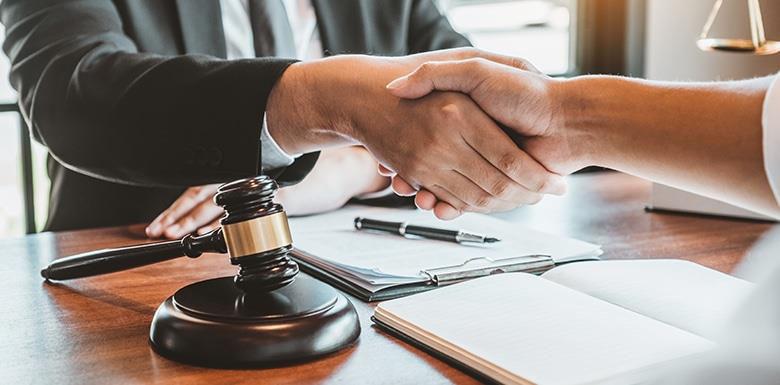
WZ-02,Sadh Nagar, Main Road Palam,New Delhi-45 EMAIL US: guptamanoj50@yahoo.com Mobile No: +919718451126 / +917678535162


WZ-02,Sadh Nagar, Main Road Palam,New Delhi-45 EMAIL US: guptamanoj50@yahoo.com Mobile No: +919718451126 / +917678535162
Defence lawyers play a crucial role in ensuring justice within a democratic society. In India, where the judiciary serves as the cornerstone of the legal framework, defence lawyers not only advocate for their clients but uphold the principles of justice, equality, and fairness. However, this significant responsibility requires strict adherence to ethical norms and professional conduct. The Advocates Act of 1961 governs the ethics and professional conduct of defence lawyers in India, the Bar Council of India's rules, judicial precedents, and the principles of natural justice.

Defence lawyers safeguard the rights of individuals accused of criminal offences. Their role is not merely to exonerate their clients but to ensure that everyone is granted a fair trial. By challenging evidence, cross-examining witnesses, and presenting legal arguments, defence lawyers act as a check against misuse of state power. They embody the principle of "innocent until proven guilty," a cornerstone of India's legal system.
India
https://veteranlegal.in/defense-lawyer-in-india/
The primary duty of a defence lawyer is towards their client. This includes:
• Confidentiality: Maintaining strict confidentiality regarding all communications with the client, as per Section 126 of the Indian Evidence Act, 1872. Breach of confidentiality can erode trust and undermine the lawyerclient relationship.
• Zealous Representation: Advocating passionately and diligently, irrespective of personal biases about the client’s guilt or innocence.
• Informed Consent: Keeping clients informed about the progress of their case and obtaining their consent before making significant decisions.
A defence lawyer's duty to the court often balances their obligation to their client. This entails:
• Candour and Honesty: Avoiding misrepresentation of facts or laws to the court.
• Non-Misleading Evidence: Not submitting fabricated or altered evidence, as this can obstruct justice.
• Respect for Judicial Process: Maintaining decorum, addressing the court respectfully, and avoiding any conduct that undermines the judiciary.
Defence lawyers must balance their duty to clients and the court with their responsibilities to society. This includes:
• Preventing miscarriages of justice by exposing flaws in evidence or prosecutorial misconduct.
• Promoting public confidence in the legal system by adhering to ethical practices.
• Ensuring that their actions do not encourage crime or lawlessness.
Professional conduct also requires that defence lawyers respect their opposing counsel. This includes refraining from personal attacks and maintaining professionalism during legal proceedings.
The Bar Council of India prescribes a detailed code of conduct for lawyers, which includes the following key directives:
Defence lawyer in India
https://veteranlegal.in/defense-lawyer-in-india/
• Prohibition on Advertising: Advocates are prohibited from soliciting work through advertisements, as this is seen as detrimental to the dignity of the profession.
• Prohibition on Contingency Fees: Advocates cannot charge fees contingent upon a case's outcome, ensuring their advice remains impartial.
• Avoiding Conflict of Interest: Lawyers must avoid representing clients where there is a conflict of interest.
• No Influence on Judges: Advocates are forbidden from attempting to influence judges or judicial officers improperly.
Despite the well-defined ethical framework, defence lawyers in India often face challenges in maintaining these standards:
• Pressure from Clients: In high-stakes cases, clients may push lawyers to adopt unethical practices such as fabricating evidence or bribing officials.
• Systemic Corruption: The prevalence of corruption in certain judicial and law enforcement segments can tempt or coerce lawyers into unethical behaviour.
• Lack of Accountability: Although the Bar Council has the authority to take disciplinary action, enforcing ethical standards can sometimes be lax or inconsistent.
• Overburdened System: The sheer volume of cases in Indian courts can lead to shortcuts, sometimes at the expense of ethical practices.
Several cases in India have underscored the importance of ethics in the legal profession:
• P.D. Gupta v. Ram Murti and Others (1997): The Supreme Court emphasized the importance of confidentiality and trust in the lawyer-client relationship.
• O.P. Sharma v. High Court of Punjab & Haryana (2011): This case reiterated the need for lawyers to avoid influencing judicial officers and maintain professional integrity.
• Bar Council of India v. A.K. Balaji (2018): The Supreme Court clarified the rules regarding foreign lawyers practising in India, reflecting on the broader principles of professional conduct.
India’s ethical framework for lawyers aligns with global standards but has its unique challenges. In countries like the United States and the United Kingdom, bar associations enforce stricter penalties for breaches of conduct. However, India's
Defence lawyer in India
https://veteranlegal.in/defense-lawyer-in-india/
emphasis on preventing solicitation and contingency fees reflects its distinct legal culture.
To strengthen ethical practices among defence lawyers in India:
• Regular Training: The Bar Council should mandate continuing legal education on ethics and professional responsibility.
• Stronger Enforcement: Disciplinary mechanisms must be more robust and transparent to deter unethical practices.
• Technological Solutions: Adopting case management and evidencehandling technology can reduce errors and improve accountability.
• Raising Awareness: Educating the public about ethical practices can encourage clients to demand higher standards from their lawyers.
Defence lawyers in India hold a pivotal position in the justice delivery system. Their adherence to ethics and professional conduct is a legal obligation and a moral imperative. Upholding these principles ensures the judiciary's integrity and strengthens public trust in the legal system. Defence lawyers can continue to serve as the guardians of justice and fairness in society by navigating the challenges and embracing their duties with dedication.
https://veteranlegal.in/defense-lawyer-in-india/